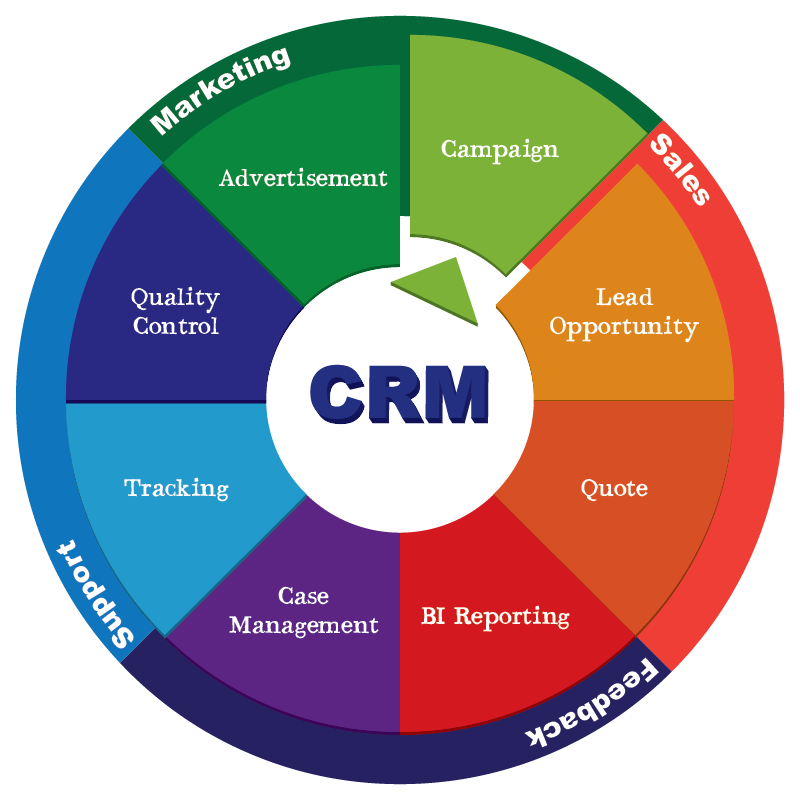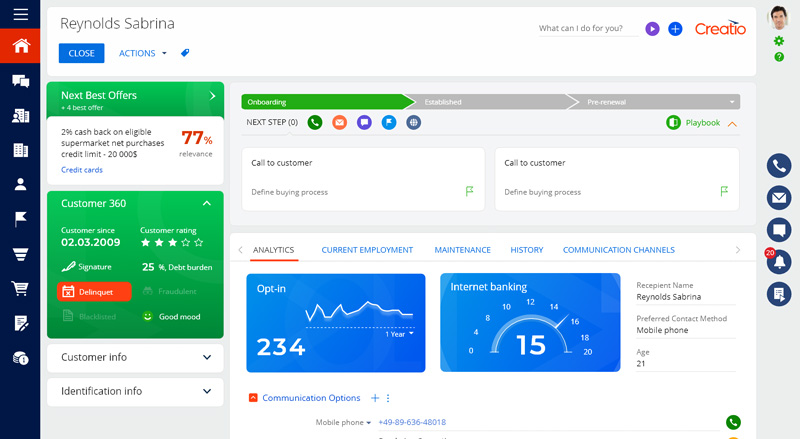CRM information systems are the backbone of customer relationship management, providing businesses with the tools they need to track, manage, and nurture their customer interactions. These systems offer a range of benefits, from improved customer service to increased sales and marketing efficiency.
In this article, we’ll explore the key components, features, and benefits of CRM information systems, and discuss how they can help businesses build stronger customer relationships.
CRM systems are designed to help businesses manage all aspects of their customer relationships, from initial contact to ongoing support. They provide a centralized platform for storing customer data, tracking interactions, and managing sales and marketing campaigns. By providing a complete view of the customer journey, CRM systems help businesses understand their customers’ needs and preferences, and tailor their interactions accordingly.
Definition and Overview of CRM Information Systems

Customer Relationship Management (CRM) information systems are designed to manage and analyze customer interactions and data throughout the customer lifecycle. They provide a centralized platform for businesses to track customer preferences, purchase history, and communication channels, enabling them to build stronger relationships and improve customer experiences.
Key Components of CRM Systems
- Contact Management:Stores and organizes customer contact information, including name, address, phone number, and email.
- Sales Management:Tracks sales opportunities, manages leads, and provides insights into customer buying patterns.
- Marketing Management:Automates marketing campaigns, segments customers, and measures campaign effectiveness.
- Customer Service Management:Provides tools for resolving customer inquiries, tracking support tickets, and managing customer feedback.
- Analytics and Reporting:Generates reports and dashboards to analyze customer data, identify trends, and improve decision-making.
Benefits of CRM Systems
- Improved customer satisfaction and loyalty
- Increased sales and revenue
- Enhanced operational efficiency
- Better data management and insights
- Personalized marketing and customer experiences
Benefits of CRM Information Systems

Implementing a CRM system offers numerous advantages for businesses. It enables them to establish stronger customer relationships, enhance customer satisfaction, and drive business growth. Let’s explore some of the key benefits of CRM information systems:
Improved Customer Service
- Centralized customer data allows agents to access a comprehensive view of each customer’s history, preferences, and interactions.
- Automated processes streamline communication and response times, ensuring timely and efficient support.
- Real-time insights help identify customer issues and resolve them proactively, preventing escalation.
Enhanced Customer Relationships
- Personalized communication tailored to individual customer needs fosters stronger bonds.
- Loyalty programs and targeted promotions reward customers for their business, building long-term relationships.
- Feedback mechanisms gather customer insights, enabling businesses to improve their products and services.
Increased Sales and Marketing Efficiency
- CRM systems provide insights into customer buying patterns, enabling targeted marketing campaigns.
- Sales teams can prioritize leads and track their progress through the sales funnel, optimizing conversion rates.
- Automated workflows reduce manual tasks, freeing up time for sales reps to focus on building relationships.
Improved Business Intelligence
- CRM systems collect and analyze vast amounts of customer data, providing valuable insights into customer behavior.
- Businesses can identify trends, forecast demand, and make informed decisions based on real-time data.
- Customer segmentation and predictive analytics help businesses target their efforts effectively.
Features of CRM Information Systems
CRM systems are characterized by a range of features that support the effective management of customer interactions and relationships. These features include:
Essential Features of a Comprehensive CRM System
- Customer Data Management:Captures and stores comprehensive customer data, including demographics, contact information, purchase history, and preferences.
- Sales Force Automation:Automates sales processes, such as lead management, opportunity tracking, and forecasting.
- Marketing Automation:Manages marketing campaigns, automates email marketing, and tracks customer engagement.
- Customer Service Management:Provides a central platform for handling customer inquiries, complaints, and support requests.
- Reporting and Analytics:Generates reports and analytics that provide insights into customer behavior, sales performance, and marketing effectiveness.
Comparison of CRM Systems Based on Features
Different CRM systems offer varying levels of functionality and features. Some of the key factors to consider when comparing CRM systems include:
- Scalability:The ability of the system to handle a growing number of users and data.
- Customization:The flexibility of the system to be tailored to specific business needs.
- Integration:The ability of the system to integrate with other business applications, such as ERP and marketing automation.
- User Interface:The ease of use and accessibility of the system for both users and customers.
- Cost:The licensing and implementation costs of the system.
Implementation and Integration of CRM Information Systems
![]()
Implementing and integrating a CRM system involves several key steps. It’s crucial to plan carefully, engage stakeholders, and ensure proper integration with other business applications for a successful implementation.
The integration of CRM systems with other business applications, such as ERP, marketing automation, and customer support systems, enables seamless data flow and enhances overall business efficiency.
Key Steps in Implementing a CRM System
- Define goals and objectives:Clearly define the desired outcomes and benefits of implementing a CRM system.
- Select a CRM vendor:Evaluate different CRM vendors based on their features, pricing, and compatibility with your business needs.
- Data migration:Import existing customer data into the new CRM system, ensuring data accuracy and completeness.
- Configure and customize:Tailor the CRM system to align with your specific business processes and requirements.
- Train users:Provide comprehensive training to ensure users understand and effectively utilize the CRM system.
- Monitor and evaluate:Regularly track and assess the performance of the CRM system, making adjustments as needed.
Integration with Other Business Applications
- ERP integration:Connect the CRM system with the ERP system to share customer and order information, streamlining business processes.
- Marketing automation integration:Integrate with marketing automation tools to automate marketing campaigns and track customer engagement.
- Customer support integration:Integrate with customer support systems to provide a unified view of customer interactions and improve service efficiency.
Data Management and Analytics in CRM Information Systems
Data management is crucial in CRM systems as it enables businesses to collect, organize, and analyze customer data. This data provides valuable insights into customer behavior, preferences, and trends, allowing businesses to make informed decisions and personalize their marketing and sales strategies.
CRM systems can be used for data analytics and insights in various ways:
Data Analytics and Insights
- Customer Segmentation:CRM systems allow businesses to segment customers based on demographics, behavior, and other attributes, enabling targeted marketing campaigns and personalized experiences.
- Customer Lifetime Value (CLTV) Analysis:CRM systems can track customer interactions and purchases, providing insights into customer loyalty and profitability, helping businesses optimize marketing investments.
- Predictive Analytics:CRM systems can use machine learning and AI to analyze customer data and predict future behavior, such as purchase likelihood or churn risk, enabling proactive engagement and retention strategies.
- Sentiment Analysis:CRM systems can analyze customer feedback, social media mentions, and other sources to gauge customer sentiment and identify areas for improvement in products or services.
- Trend Analysis:CRM systems can track customer behavior over time, identifying trends and patterns that inform product development, marketing strategies, and customer support initiatives.
Security and Privacy Considerations in CRM Information Systems
CRM systems store sensitive customer data, making them potential targets for security breaches and privacy concerns. Organizations must prioritize protecting this data to maintain customer trust and comply with regulations.
Security Measures
Effective security measures include:
- Implementing robust access controls to restrict unauthorized access to customer data.
- Using encryption to protect data in transit and at rest.
- Regularly monitoring and auditing system activity for suspicious activity.
- Conducting regular security assessments and penetration testing to identify vulnerabilities.
Privacy Considerations
Organizations must also address privacy concerns related to CRM data:
- Obtaining explicit consent from customers before collecting and using their personal data.
- Complying with data protection regulations and industry best practices.
- Providing customers with access to and control over their data.
- Limiting data retention periods and securely disposing of data when no longer needed.
7. Trends and Future of CRM Information Systems

The CRM industry is constantly evolving, with new technologies and trends emerging all the time. Some of the most important trends to watch in the coming years include:
Artificial Intelligence (AI) and Machine Learning (ML)
AI and ML are already being used in CRM systems to automate tasks, improve customer segmentation, and provide personalized recommendations. In the future, AI and ML will become even more sophisticated, enabling CRM systems to do even more complex tasks, such as predicting customer behavior and identifying potential sales opportunities.
Cloud-Based CRM
Cloud-based CRM systems are becoming increasingly popular because they offer a number of advantages over on-premise systems, such as lower costs, greater flexibility, and easier scalability. In the future, cloud-based CRM systems are expected to become even more popular, as more and more businesses move their operations to the cloud.
Social CRM
Social CRM is a type of CRM that helps businesses manage their relationships with customers through social media. In the future, social CRM is expected to become even more important, as more and more customers use social media to interact with businesses.
Mobile CRM, Crm information system
Mobile CRM is a type of CRM that allows businesses to manage their customer relationships from their mobile devices. In the future, mobile CRM is expected to become even more popular, as more and more employees use their mobile devices to work.
The Future of CRM Information Systems
The future of CRM information systems is bright. CRM systems are becoming increasingly sophisticated and are able to do more and more complex tasks. As a result, CRM systems are becoming more and more essential for businesses of all sizes.
In the future, CRM systems are expected to become even more integrated with other business systems, such as ERP and marketing automation systems. This will allow businesses to have a complete view of their customers and to better manage their relationships with them.
Epilogue

CRM information systems are an essential tool for businesses of all sizes. They provide a range of benefits, from improved customer service to increased sales and marketing efficiency. By implementing a CRM system, businesses can gain a better understanding of their customers, build stronger relationships, and drive business growth.
FAQs
What is a CRM information system?
A CRM information system is a software application that helps businesses manage their customer relationships. It provides a centralized platform for storing customer data, tracking interactions, and managing sales and marketing campaigns.
What are the benefits of using a CRM information system?
CRM information systems offer a range of benefits, including improved customer service, increased sales and marketing efficiency, and better customer insights.
How do I choose the right CRM information system for my business?
When choosing a CRM information system, it is important to consider the size of your business, your industry, and your specific needs. There are a number of different CRM systems available, so it is important to compare the features and benefits of each system before making a decision.
